11 Defensive Stocks to Buy Now for Harder Times Later
The best time to buy defensive stocks is before you need them. Here are 11 picks to buy now to prepare yourself for an eventual patch of turbulence.


Profit and prosper with the best of Kiplinger's advice on investing, taxes, retirement, personal finance and much more. Delivered daily. Enter your email in the box and click Sign Me Up.
You are now subscribed
Your newsletter sign-up was successful
Want to add more newsletters?

Delivered daily
Kiplinger Today
Profit and prosper with the best of Kiplinger's advice on investing, taxes, retirement, personal finance and much more delivered daily. Smart money moves start here.

Sent five days a week
Kiplinger A Step Ahead
Get practical help to make better financial decisions in your everyday life, from spending to savings on top deals.

Delivered daily
Kiplinger Closing Bell
Get today's biggest financial and investing headlines delivered to your inbox every day the U.S. stock market is open.

Sent twice a week
Kiplinger Adviser Intel
Financial pros across the country share best practices and fresh tactics to preserve and grow your wealth.

Delivered weekly
Kiplinger Tax Tips
Trim your federal and state tax bills with practical tax-planning and tax-cutting strategies.

Sent twice a week
Kiplinger Retirement Tips
Your twice-a-week guide to planning and enjoying a financially secure and richly rewarding retirement

Sent bimonthly.
Kiplinger Adviser Angle
Insights for advisers, wealth managers and other financial professionals.

Sent twice a week
Kiplinger Investing Weekly
Your twice-a-week roundup of promising stocks, funds, companies and industries you should consider, ones you should avoid, and why.

Sent weekly for six weeks
Kiplinger Invest for Retirement
Your step-by-step six-part series on how to invest for retirement, from devising a successful strategy to exactly which investments to choose.
Why would you hunt down the best stocks to buy now for a downturn when the markets are at all-time highs?
The current bull market – currently fueled by cheap money from the Federal Reserve, another stimulus plan and, most importantly, the hopes that some day in the nebulous future, we'll have COVID under control – is going to end. Every bull market does.
That's not why, however. That end, which would occur with a 20% decline from a market peak, could be a long time coming. The reason why is that even a mere correction, which is a decline of between 10% to 20%, would be enough to rack up sizable losses and shake investor confidence. And several market watchers see the potential for a correction in the coming months.
"Overall, we still believe U.S. equities in general remain vulnerable to a bigger correction than we have experienced thus far- and that this could materialize in Q1 or Q2 with upwards of a -10-15% repricing off the recent highs," says Dan Wantrobski, technical strategist at Janney Montgomery Scott.
"The message from market sentiment and positioning indicators is that equities are ripe for a correction," adds BCA Research.
Naturally, it's better to have an escape plan before you need it. So if at some point the "hopium" disappears, you'll want to be exposed to more defensive stocks – companies that sell vital goods and services, have reliable earnings and, where possible, pay dividends. Almost everything is overvalued now, but these kinds of stocks should hold their value better in a downturn than the rest of the market.
Read on as we discuss 11 of the best stocks to buy now if you want to add some protection against future turbulence. Three specific areas of the market stand out right now: digital infrastructure stocks, healthcare providers and consumer staples stocks – all areas of the market that will be in demand no matter what happens over the next few months.
Data is as of Feb. 4. Dividend yields are calculated by annualizing the most recent payout and dividing by the share price.
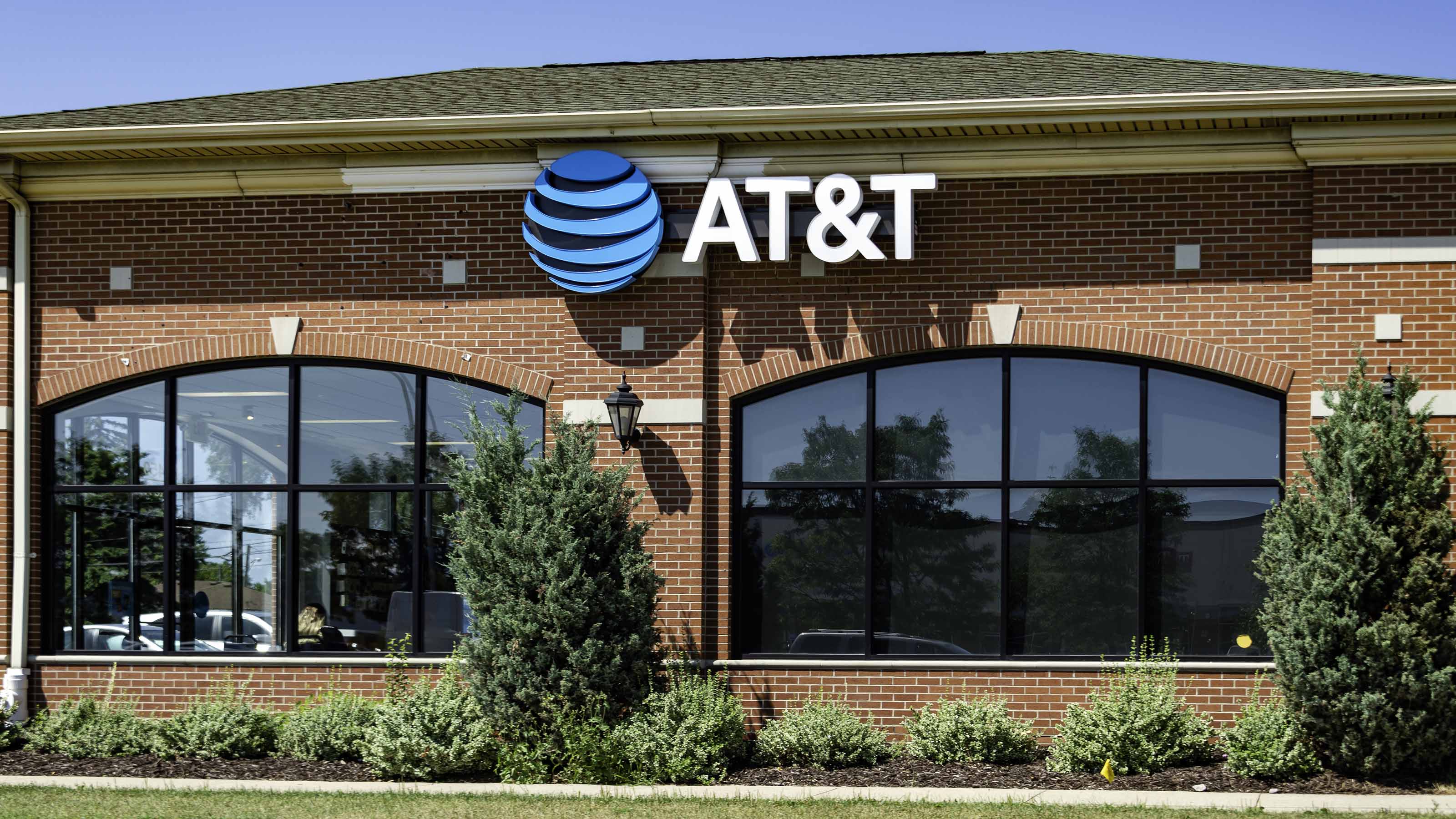
AT&T
- Market value: $206.2 billion
- Dividend yield: 7.2%
- Industry: Telecommunications
AT&T (T, $28.89) admittedly made some of the worst business mistakes of the last decade, buying both DirecTV and Time Warner. The idea was to get more from its Internet services by adding content to them, but so far, that hasn't worked out quite as planned.
Veteran AT&T executive John Stankey became CEO in July 2020. He replaced Randall Stephenson, who made those bad decisions. His first move was to consolidate the company's entertainment assets around HBO Max, a streaming service that competes with Netflix (NFLX). This meant, among other things, releasing theatrical movies online at the same time they go into theaters.car It's a risk – more people might sign up for HBO Max in the short-term, but top producers, directors and stars might be less willing to sign with AT&T's Warner studio longer-term.
The good news? Demand for 5G wireless service should bail out AT&T to some extent and help it maintain its phenomenal dividend – a hallmark of many defensive stocks.
AT&T currently boasts the fastest 5G network and was a major bidder in the recent auction of new spectrum. This could mean even more debt – AT&T reportedly was seeking another $14 billion in debt on top of the $179 billion in IOUs it carried at the end of 2020, according to S&P Global Market Intelligence data. Still, 5G is essential to the Machine Internet, thus essential to economic growth, and thus essential to AT&T's growth.
Marc Lichtenfeld, chief income strategist at The Oxford Club, insists AT&T has enough cash flow to not only afford its dividend, but keep increasing it and maintain its status among the Dividend Aristocrats. AT&T's high payout is among the top reasons to consider T among the best stocks to buy now for a smoother ride in a downturn.
"Its entertainment business should rebound as the economy recovers and HBO Max is off to a strong start," Lichtenfeld adds.
Sam Hendel, president of Levin Easterly Partners, a New York-based asset manager, says the wireless business was very stable during the pandemic and will continue to generate cash. He also expects Warner Media to recover as the pandemic eases. "The stock at 8 times free cash flow has limited downside," he says.
Robert R. Johnson, a professor of finance at Creighton University's Heider College of Business, adds that AT&T is "attractively priced" at less than 10 times next year's earnings.
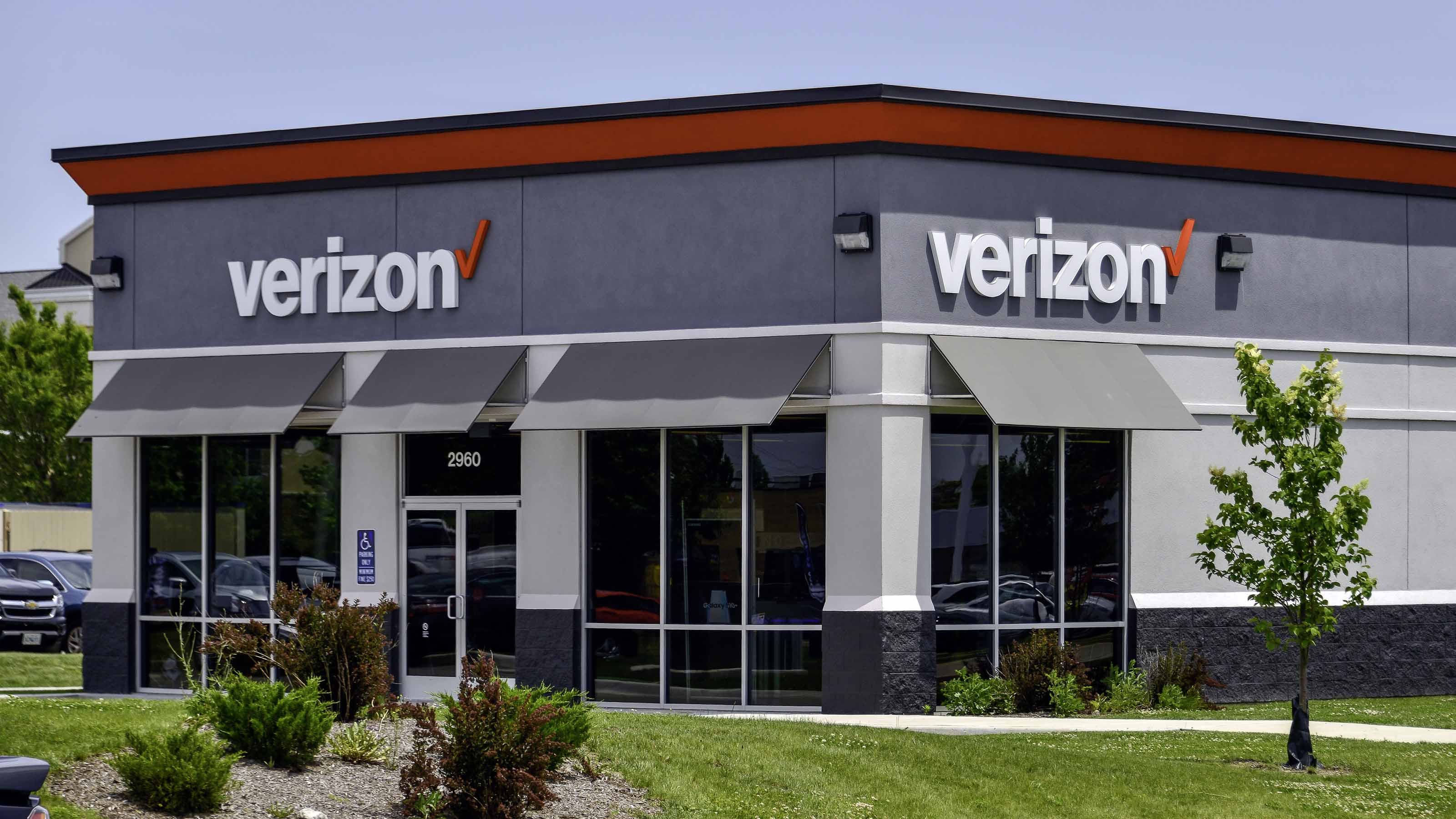
Verizon Communications
- Market value: $228.6 billion
- Dividend yield: 4.6%
- Industry: Telecommunications
Verizon (VZ, $55.14) didn't spend as heavily on content assets as AT&T over the past decade, and thus, its stock wasn't hit as hard by their failure to perform. Most of the value in the former America Online and Yahoo, combined as Verizon Media, was written off in late 2018.
What's left is a purer play in telecommunications than AT&T, with wireless and its FiOS cable unit at its center. Like AT&T, Verizon was a big bidder during the recent frequency auction. Its debt load is a little lighter, too, at $150 billion. VZ has focused on network management and has cut its costs by $10 billion per year, using technology and buying out some executives' contracts.
Jeff Bilsky, co-portfolio manager at Chartwell Investment Partners in Berwyn, Pennsylvania, calls Verizon's wireless services a staple of modern life. "Verizon should be one of the biggest beneficiaries of the 5G craze, he says. "As customers consume more data, both revenue and margins should improve."
"Verizon's laser focus on going all-in on 5G positions it as a strong investment opportunity with a strong yield," says Daniel Milan, managing partner of Cornerstone Financial Services in Southfield, Michigan. He is very bullish on 5G, which uses spectrum from the low frequencies of broadcasters to the highest ones of satellites. "Not making big bets on media has allowed Verizon to invest billions in the network."
Yale Bock, founder of YH&C Investments in Las Vegas, agrees that "consumers will keep paying" for wireless service, giving Verizon a sound revenue base. That stability makes VZ one of the best stocks to buy now to take a defensive stance.
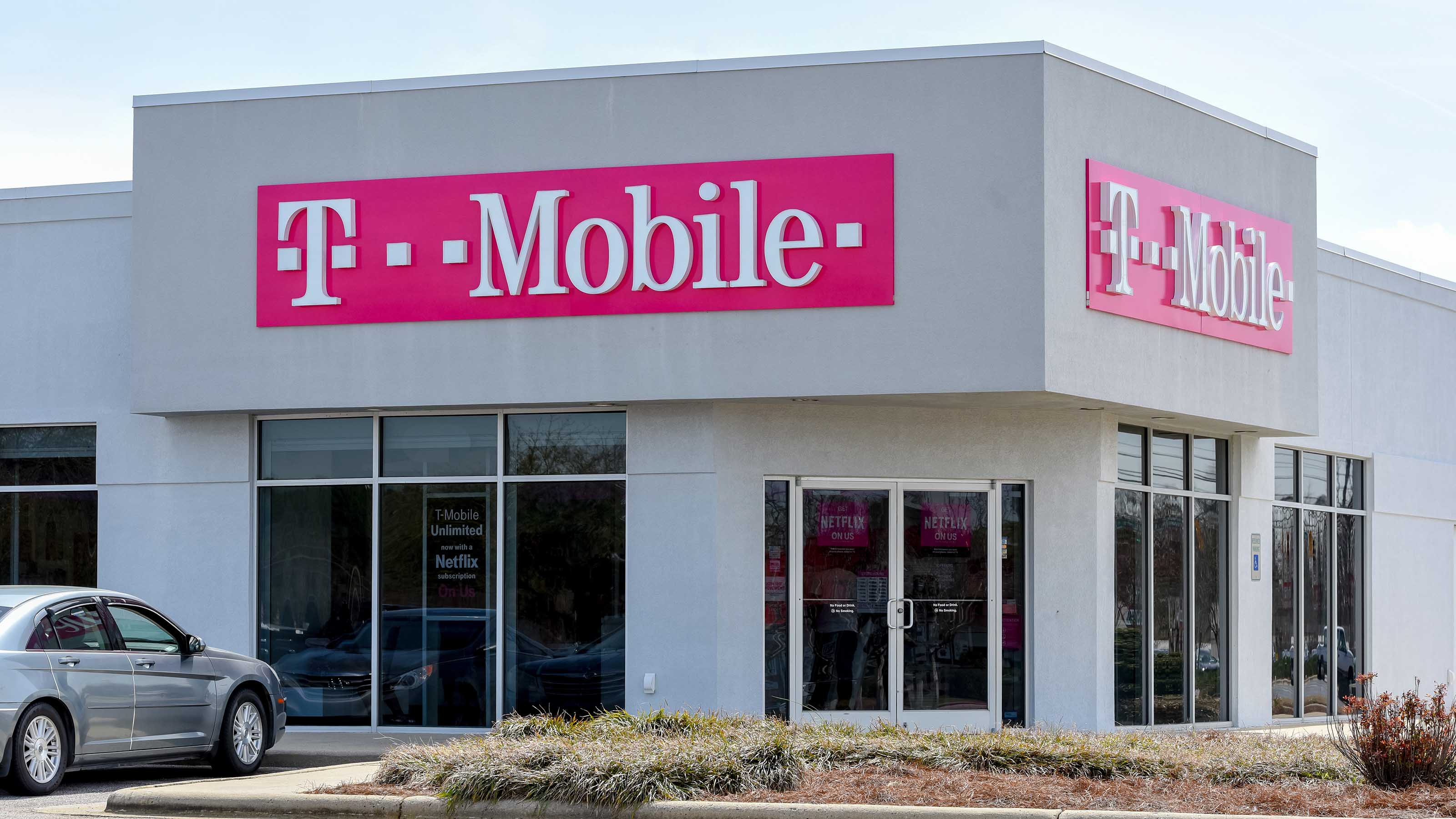
T-Mobile US
- Market value: $159.0 billion
- Dividend yield: N/A
- Industry: Telecommunications
T-Mobile US (TMUS, $130.60) completed its acquisition of Sprint in April 2020. The all-stock transaction put the merged entity in good position entering the recent auction of new 5G spectrum, as it already has most of what it needs on that front.
T-Mobile is now busy buying equipment to build out its assets, and has already signed to spend $2.1 billion advertising 5G service through Initiative, part of Interpublic Group (IPG).
In May 2020, Mike Sievert replaced CEO John Legere, whose long hair and T-shirts defined the company's advertising for nearly a decade. Sievert has spent most of his career in marketing, including a stint at AT&T. He was hired as chief marketing officer by Legere in 2012.
Chartwell's Bilsky says that despite past outperformance relative to its rivals, T-Mobile still might have the best upside, even in a downturn. "T-Mobile now has the potential to steal significant market share," he says, and investors might be underestimating that.
Ryan Johnson, director of Portfolio Management & Research at Buckingham Advisors, a wealth advisor in Dayton, Ohio, believes T-Mobile has an edge in 5G that could last a year or more. He also thinks there are more cost savings to come from the Sprint merger.
"Earnings per share may triple from 2021 to 2024," he adds.

General Electric
- Market value: $100.8 billion
- Dividend yield: 0.4%
- Industry: Industrial conglomerate
General Electric (GE, $11.45) is one of the "fallen angels" of the last decade. The mistakes made by former CEO Jeff Immelt, like buying Alstom's energy business in 2015, and hiding the damage from shareholders, are now legend.
Saving the company from bankruptcy was a close-run thing. But Larry Culp – recruited from the Harvard Business School after building Danaher (DHR) into a medical equipment conglomerate now worth more than GE – seems to have done it.
"CEO Lawrence Culp, who took over in October 2018, has long been known for his focus on cash," says Argus Research's John Eade, who has a Buy rating on GE and calls it a deep value idea. "His previous company, Danaher, has a multidecade history of generating more free cash flow than net income, and we have expected him to focus on this metric at GE.
"The company achieved more than $2 billion in operational cost reductions and $3 billion of cash preservation to mitigate the financial impact of the pandemic."
GE's biggest business is in turbines. This includes power turbines that create power from natural gas and wind turbines that create electricity from moving air, as well as jet engines that power jet planes. The usually reliable jet engine business has been hurt by the pandemic and the Boeing (BA) 737-MAX scandal. The power turbine market has also been weak during the pandemic.
But there's another big business at GE – one that Culp is familiar with from his time at Danaher. Healthcare is an "exceptional" business, says YH&C Investments' Bock. Since selling GE Healthcare's biopharma unit to Danaher to help the balance sheet, GE has become a buyer of other companies again. Its first acquisition is Prismatic Sensors, a Swedish company whose photon-counting technology can directly benefit GE Healthcare's CT scanners.
Now that General Electric has right-sized itself, its blend of businesses actually make GE more of a defensive play again, putting it among the best stocks to buy now to add ballast to a portfolio.

Centene
- Market value: $35.4 billion
- Dividend yield: N/A
- Industry: Healthcare plans
Centene (CNC, $60.40) earns its money managing Medicare and Medicaid contracts. It does this through managed care, in which it controls spending through contracts with front-line clinics, as well as acute care facilities such as dialysis centers, and by controlling drug disbursement.
The model proved very popular on the Healthcare.gov exchanges created under the Affordable Care Act, as the company could offer lower prices than traditional insurers.
Centene has already made an M&A move in this young year, agreeing to buy Magellan Health (MGLN) for $2.2 billion. Deutsche Bank analyst George Hill praises the Magellan buy, which focuses on specialties new to Centene, such as mental health. It also brings in 5.5 million new government patients, 18 million specialty health customers, and 16 million medical pharmacy members.
"Centene will double the lives covered in mental health and establish one of the largest behavioral health platforms in the U.S., with 41 million unique members," Hill says.
Centene trades at just 11 times earnings estimates. Part of that is because margins are thin, though, with just 2% of revenues hitting the bottom line. That means growth has to come from acquisitions, from low bids on the exchanges, or from new government health contracts.
"The more challenging the economy and the fewer people who have medical coverage from employers, the greater potential there is for them to seek Medicaid coverage," says Sam Hendel, president of Levin Easterly Partners in New York. He adds that Centene is a defensive stock "with a low correlation to economic or stock market weakness."
The analyst community also throws its weight behind CNC shares. Thirteen of 17 pros covering Centene put it among their best stocks to buy now, with an average $82.15 price target that implies 36% upside from current prices.
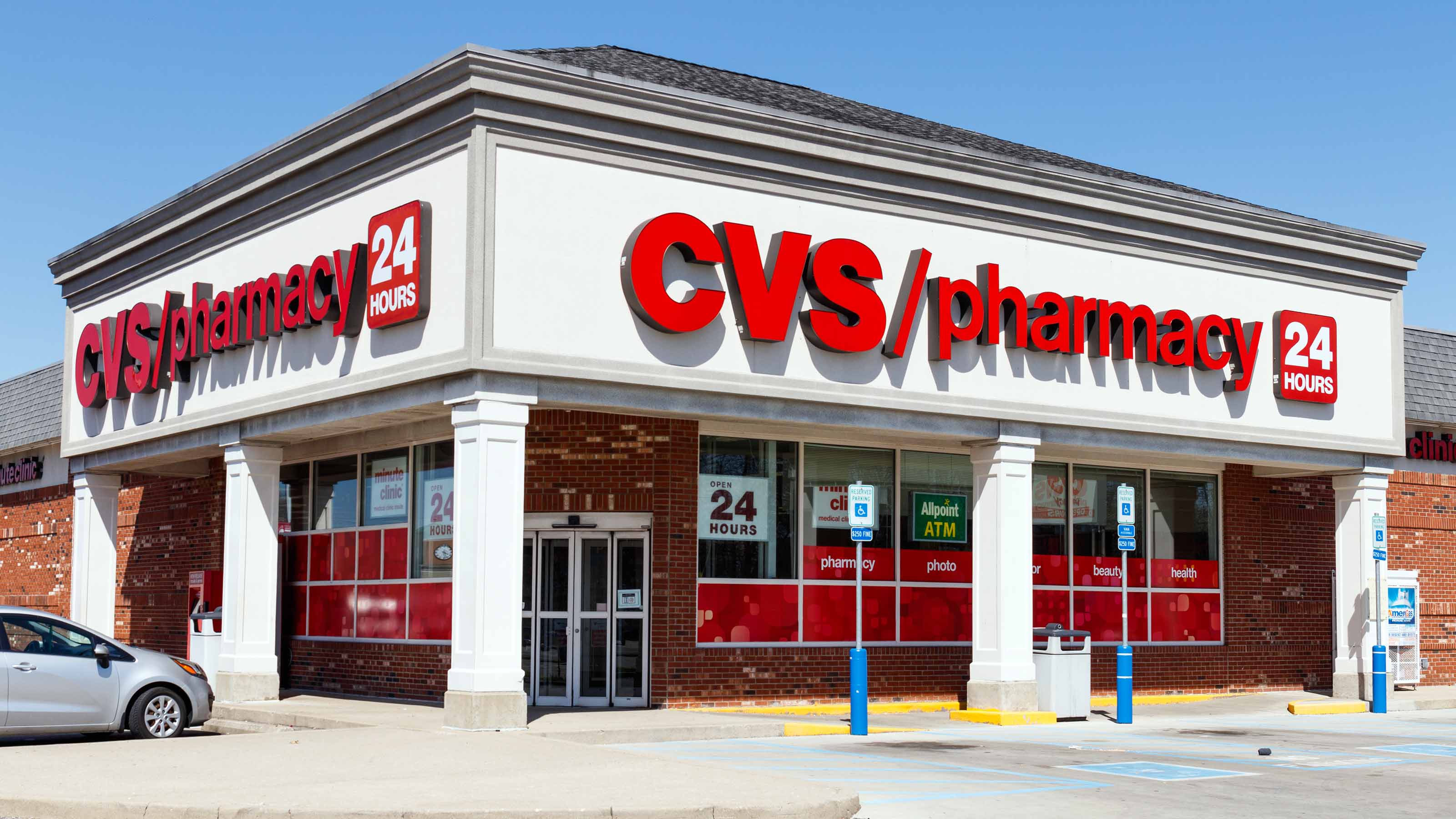
CVS Health
- Market value: $96.1 billion
- Dividend yield: 2.7%
- Industry: Pharmacy, healthcare plans
CVS Health (CVS, $73.00) isn't just a pharmacy chain. Instead, it's more of a total healthcare system, also offering doctor's visits, managed care through Aetna, and a pharmacy benefit management system that gives it control over drug costs.
The Aetna acquisition, in 2018, boosted revenues by $60 billion annually year. Like Centene, it's built for hard times.
In November, analysts at CFRA Research in New York reiterated their strong buy rating on the stock. Analyst Kevin Huang wrote that he didn't expect Amazon.com's (AMZN) PillPack offering to damage CVS. And there's reason to believe that Amazon won't necessarily cripple the competition in every business it touches. The company already decided earlier this year to shutter its Haven Healthcare – a joint-venture effort at managed care with Berkshire Hathaway (BRK.B) and JPMorgan Chase (JPM). The decision emphasized the size of CVS' moat in pharmacy and managed care.
YH&C Investments' Bock holds CVS in some client portfolios because of its size, consistent cash flow and profitability. The analyst community is also strongly bullish on the pharmacy chain, giving it 21 Strong Buys or Buys against six Holds and no Sells of any kind. In addition to its attractiveness as a defensive stock, they believe CVS has about 18% upside in it over the next 12 months.

UnitedHealth Group
- Market value: $314.5 billion
- Dividend yield: 1.5%
- Industry: Healthcare plans
You might be noticing a trend: Health insurers make for pretty defensive stocks. No wonder, then, why we're also including UnitedHealth Group (UNH, $329.32). UNH is America's largest health insurer, and one of its most profitable, squeezing out a roughly 6% net margin on its $257.1 billion in 2020 revenues.
UnitedHealth dominated the past decade thanks in part to the technology platform built by its Optum unit. Its decision to buy Catamaran, a pharmacy benefit manager, in 2015 gave it greater control over drug costs.
Buckingham Advisors' Ryan Johnson believes UNH would weather a market downturn thanks in part to the growth of Optum, which delivers half its operating income.
"These businesses are focused on lowering costs, which is attractive in any environment," he writes.
UnitedHealth also has more than 8 million customers outside the U.S., mostly in Asia and South America, providing a little geographic diversification. And UNH's strong free cash flow and low debt, relative to its market value, should allow it to continue making acquisitions as it spies opportunities to grow.
CFRA's Sel Hardy believes UNH is among some of the best healthcare stocks to buy now, rating it a Strong Buy in part on optimism for the recent $13 billion acquisition of health-tech firm Change Healthcare.
"We cut our '21 EPS (Dec.) estimate by $0.20 to $18.65 as we trim our Q1 EPS estimate due to rising medical costs trend," Hardy says. "Following the closure of Change Healthcare transaction in H2 2021, we might revise our estimates up."
UNH isn't a big yielder, at just 1.5%, but its $1.25-per-share quarterly payout is 150% larger than it was five years ago. If UnitedHealth continues to upgrade its dividend at a brisk rate, current shareholders should enjoy a much better yield on cost over time.

General Mills
- Market value: $35.0 billion
- Dividend yield: 3.6%
- Industry: Packaged foods
General Mills (GIS, $56.90) is as essential to the history of Minneapolis as Coca-Cola (KO) is to Atlanta, or Procter & Gamble (PG) is to Cincinnati. It's also an important holding for defensive investors.
General Mills' brands include Cheerios cereal, Yoplait yogurt, Pillsbury dough, and Häagen-Dazs ice cream, as well as Green Giant frozen vegetables, Totino's pizza, Progresso soup and Annie's organics. While the stock itself has effectively gone nowhere over the past five years, it trades for a reasonable 15 times earnings, yields more than 3%, and most importantly, has been extremely resilient during numerous market downturns.
"The company is now in a fundamentally better place than it was prior to 2020," write Credit Suisse analysts, who rate the stock at Outperform. The big risk to margins remains inflation, which management thinks it can hold down to 3%, hedging most of its exposure to rising commodity prices. Productivity also has increased by more than 4%, and GIS has been able raise list prices on some items. Credit Suisse expects about 10% upside on the stock based on normal conditions.
Argus Research rates GIS at Hold but admits it's a stock they "would like to get on our Buy list."
"We like management's efforts to create a differentiated portfolio of brands for health-conscious customers and to generate a higher percentage of revenue from new products," Argus analyst Christopher Graja says.

Campbell Soup
- Market value: $14.2 billion
- Dividend yield: 3.2%
- Industry: Packaged foods
Campbell Soup (CPB, $46.93) is one of the first names people think of when the economy goes sour. While it's typically a good performer in down markets, and while the pandemic caused a brief rush on the company's soup, emptying shelves, other issues have weighed on shares since.
Still, it could be one of the best stocks to buy now for a defensive posture.
CEO Mark Clouse, who took the helm in early 2019, had been CEO of Pinnacle Foods before its acquisition by Conagra (CAG) and spent most of his career in Kraft's snack division, renamed Mondelez International (MDLZ) after its spinoff. CPB shares are up 33% since Clouse came aboard, underperforming the market but marking a clear turnaround after a couple years of declines.
Levin Easterly Partners' Hendel, who calls Clouse "a strong CEO," acknowledges that soups are in a secular decline. Regardless, he notes that the consumer staples sector has "held up very well during the pandemic" and, in a downturn, investors will pay more for these stocks' earnings thanks to their stability.
Growth in 2020 was led by Campbell's "meals and beverage" division, which includes V8 juices, broths and Prego sauces, as well as the namesake soup. Clouse has shed Campbell's baking aisle, selling the Ecce Panis artisan bread brand to Jimmy's Cookies earlier this year. He is also closing a snack plant in Georgia that had been part of Snyder's-Lance, which it bought for $6.1 billion in 2018.
Argus Research has a Hold rating on shares but left the door open to "potential scenarios under which we could become more bullish on CPB." That was after the company raised its dividend 6% in December.
YH&C Investments' Bock notes Campbell's dependable cash flow and income that should help it survive another market downturn.

Coca-Cola
- Market value: $211.7 billion
- Dividend yield: 3.4%
- Industry: Beverages
Coca-Cola (KO, $49.01) is a company that, of late, deserves a little more explanation. They're not just about sugar. They're about safe drinking water at $10/gallon. Coke now has eight different brands of bottled water, including Dasani and SmartWater.
They're about so much more, too. Under James Quincey, an Englishman who became CEO in 2017, Coca-Cola has focused on improving margins and its image, selling sugary soda in smaller cans, and severing ties to a pro-sugar group accused of slanting its research. His biggest acquisition so far has been Costa Coffee, an English chain of coffee shops similar to Starbucks (SBUX). He also bought up the 57.5% of Fairlife, a milk company, that Coca-Cola didn't already own.
But it hasn't been all additions. Argus Research's Graja, who rates Stock at Buy, notes that Coca-Cola "eliminated more than 600 'zombie,' or unproductive, products in 2019 and worked to reposition the business through changes in core products."
"We expect Coke to be a stronger company when the pandemic fades," he says. "We expect the combination of more focused marketing and a more profitable brand portfolio to boost earnings and the share price as the away-from-home business rebounds."
Creighton's Robert Johnson, co-author of Investment Banking for Dummies, says KO is one of the best stocks to buy now in anticipation of any market downturn thanks in part to its steady dividend, which has been improved upon for 58 consecutive years. He also notes that its market share in juice, water, bottled tea, coffee and even energy drinks gives Coke a diversified revenue stream.

Ford
- Market value: $47.2 billion
- Dividend yield: N/A
- Industry: Auto manufacturing
Ford (F, $11.37) has long been a dirt-cheap automaker, both in nominal price and valuation. Ford shares only recently broke the $10-per-share level, and currently trade at just 10 times forward-looking earnings estimates.
The company was in rough shape last year, suspending its dividend in March to conserve cash during the pandemic. While it reported a $1.28 billion net loss in 2020, the company says it should earn between $8 billion and $9 billion in adjusted profits (pretax) in 2021, and turn about $3.5 billion to $4.5 billion of that into adjusted free cash flow. Some believe it could reboot its dividend as soon as this year.
While electric car stocks have lapped those from traditional automakers like Ford, the firm is still in the race with an electric Mustang Mach-E and a stake in Rivian, an electric truck startup. The firm also plans on investing $29 billion in EVs and autonomous vehicles over the next four years. Fortunately, Ford's F-series trucks remain in heavy demand, throwing off the cash the company needs to play catch-up in electrics.
Cornerstone Financial's Milan says "Ford is finally positioning itself well to be major players in the electric vehicle space," especially in high-margin truck and commercial van markets.
Joseph Hogue, founder of the Let's Talk Money! channel on YouTube and a former Wall Street analyst, thinks Ford "could keep heading higher on a strong outlook for auto sales." With a personal savings rate of 13% during the pandemic, a multidecade high, Americans "could be thinking of larger purchases" like a new car.
Creighton's Robert Johnson adds Ford has "a solid corporate governance and management team in place" and even prefers Ford at current levels to Tesla (TSLA). But that's because its dirt-cheap price provides a level of defense.
"Investors committing funds to Ford have a much higher margin of safety" than those in Tesla, he says.
Profit and prosper with the best of Kiplinger's advice on investing, taxes, retirement, personal finance and much more. Delivered daily. Enter your email in the box and click Sign Me Up.

-
 Quiz: Do You Know How to Avoid the "Medigap Trap?"
Quiz: Do You Know How to Avoid the "Medigap Trap?"Quiz Test your basic knowledge of the "Medigap Trap" in our quick quiz.
-
 5 Top Tax-Efficient Mutual Funds for Smarter Investing
5 Top Tax-Efficient Mutual Funds for Smarter InvestingMutual funds are many things, but "tax-friendly" usually isn't one of them. These are the exceptions.
-
 AI Sparks Existential Crisis for Software Stocks
AI Sparks Existential Crisis for Software StocksThe Kiplinger Letter Fears that SaaS subscription software could be rendered obsolete by artificial intelligence make investors jittery.
-
 Dow Hits New High Ahead of January Jobs Report: Stock Market Today
Dow Hits New High Ahead of January Jobs Report: Stock Market TodayA weak reading on December retail sales was in focus ahead of Wednesday's delayed labor market data.
-
 Tech Stocks Fuel Strong Start to the Week: Stock Market Today
Tech Stocks Fuel Strong Start to the Week: Stock Market TodayThe blue-chip Dow Jones Industrial Average extended its run above 50,000 on Monday and there are plenty of catalysts to keep the 30-stock index climbing.
-
 Dow Leads in Mixed Session on Amgen Earnings: Stock Market Today
Dow Leads in Mixed Session on Amgen Earnings: Stock Market TodayThe rest of Wall Street struggled as Advanced Micro Devices earnings caused a chip-stock sell-off.
-
 S&P 500 Tops 7,000, Fed Pauses Rate Cuts: Stock Market Today
S&P 500 Tops 7,000, Fed Pauses Rate Cuts: Stock Market TodayInvestors, traders and speculators will probably have to wait until after Jerome Powell steps down for the next Fed rate cut.
-
 S&P 500 Hits New High Before Big Tech Earnings, Fed: Stock Market Today
S&P 500 Hits New High Before Big Tech Earnings, Fed: Stock Market TodayThe tech-heavy Nasdaq also shone in Tuesday's session, while UnitedHealth dragged on the blue-chip Dow Jones Industrial Average.
-
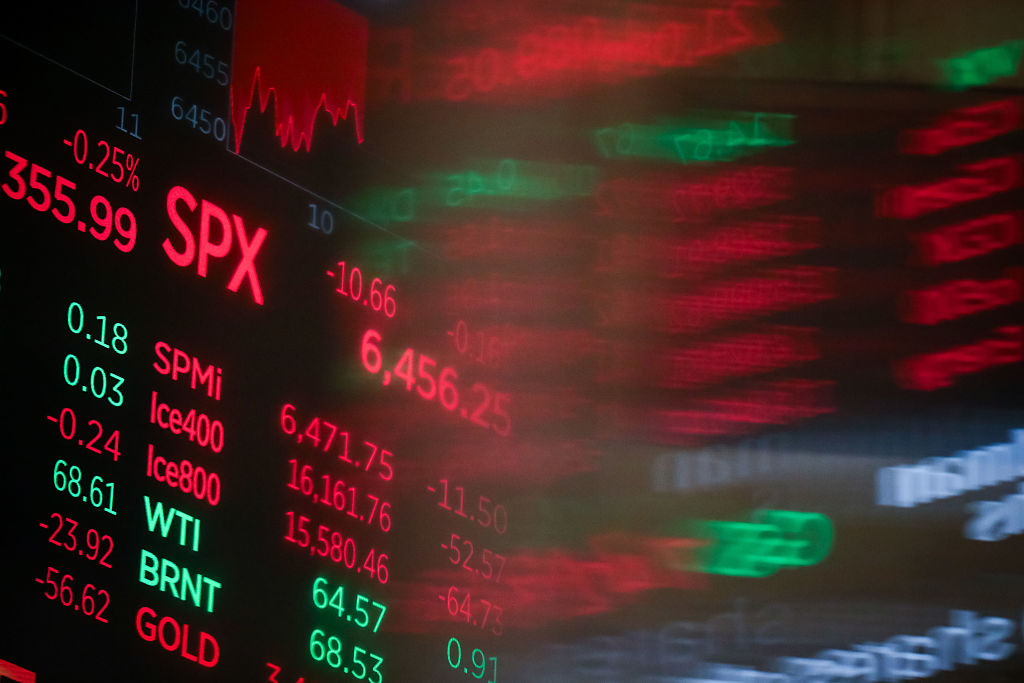 Dow Hits New High Then Falls 466 Points: Stock Market Today
Dow Hits New High Then Falls 466 Points: Stock Market TodayThe Nasdaq Composite, with a little help from tech's friends, rises to within 300 points of its own new all-time high.
-
 Stocks Struggle for Gains to Start 2026: Stock Market Today
Stocks Struggle for Gains to Start 2026: Stock Market TodayIt's not quite the end of the world as we know it, but Warren Buffett is no longer the CEO of Berkshire Hathaway.
-
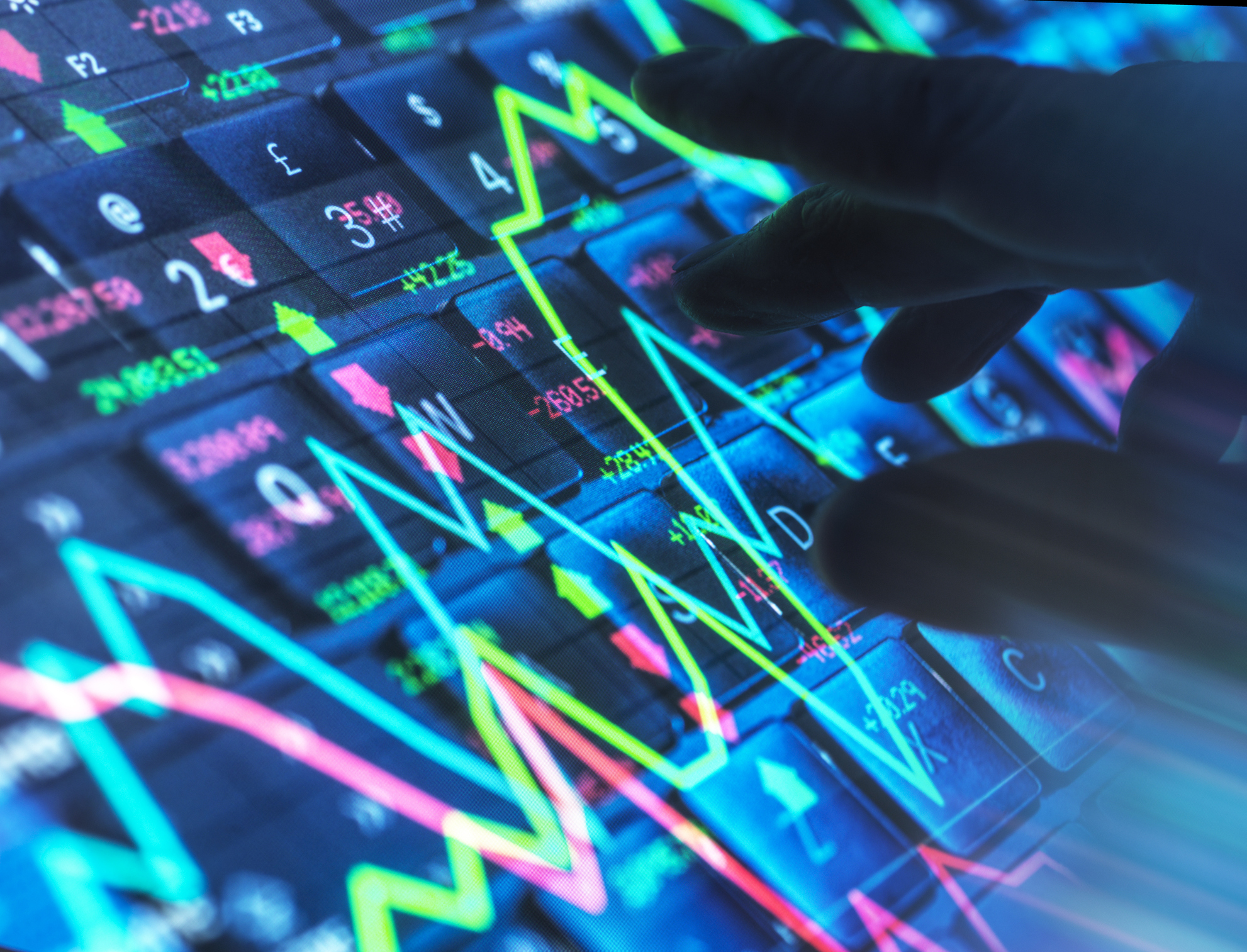 Stocks End Volatile Year on a Down Note: Stock Market Today
Stocks End Volatile Year on a Down Note: Stock Market TodayAfter nearing bear-market territory in the spring, the main market indexes closed out the year with impressive gains.
